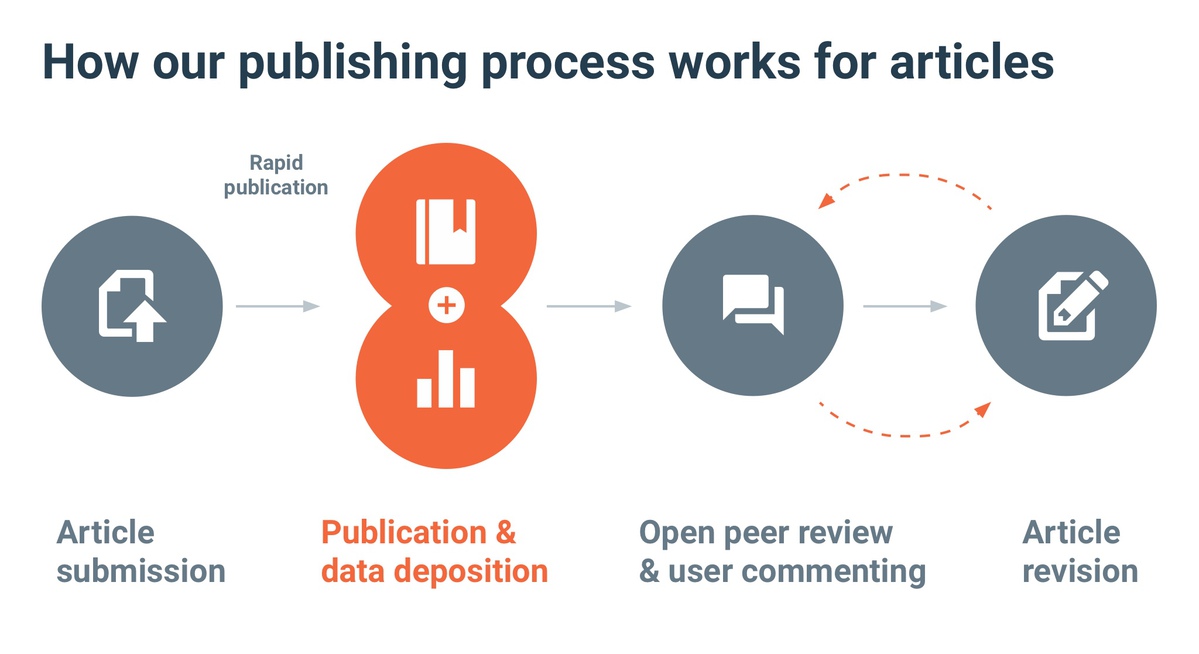Chemistry
Publish your Chemical Science research, methods, software, and data fast and openly
Submit nowChemistry is fundamental to everything we do. The open and transparent sharing of research within this essential arm of science can help to shape the future of the environment, drug discovery, medical treatments, sustainability, food production, materials and much more.
Publishing with F1000Research enables chemists to stay ahead of the curve through the rapid dissemination of research. All articles benefit from open and transparent peer review, which promotes constructive feedback and open discussion. A wide array of article types also provides researchers with greater flexibility and credit for their full range of work.
Publish across a wide variety of chemistry disciplines such as those below or within our dedicated Chemical Information Science gateway.
- Computational chemistry
- Physical chemistry
- Medicinal chemistry
- Environmental chemistry
- Biochemistry
- Cheminformatics
- Drug discovery
- Molecular
- Nanotoxicology
- Materials Informatics
We would like to support you throughout the process and help you to join experts in your field by publishing cutting-edge research that can positively influence the future. Get in touch or take a look at our comprehensive website which has a detailed 'How to Publish' and 'About' section. If you still have questions or you would like to propose a themed collection please email Guillaume.Wright@f1000.com.
Article Guidelines
At F1000Research we publish a wide range of article types to maximize the delivery of your findings. Before submission, take a look at the guidelines to ensure your article is formatted correctly.
Learn MoreWhy Publish with F1000Research?
- Our rapid publication model helps your research make an impact sooner.
- Transparent, post-publication peer review by invited experts so authors can liaise directly with them.
- Gives authors greater control and boosts the credibility of their research.
- A range of article types including research and review articles, case studies, data notes, software tools and more.
- Inclusion of all source materials and data to help further the open research movement.
- Plus, one 2019 study suggests that open data can generate up to 25% more citations.

Nanotoxicology Collection
Submit to our brand new Nanotoxicology collection and join experts discussing various interdisciplinary challenges across areas such as: nanomedicine, nanoinformatics, nano and advanced materials, nanosafety, nano-agriculture and nano-remediation.
Submit TodayThe CIS Gateway
The Chemical Information Science gateway is designed to cover all computational approaches to representing and analysing chemical structures and chemical data. Supporting a wide range of disciplines, this gateway could be the perfect home for your research.
Explore GatewayFeatured Articles
Benchmark assessment of molecular geometries and energies from small molecule force fields [version 1; peer review: 2 approved]
Victoria T. Lim, David F. Hahn, Gary Tresadern, Christopher I. Bayly, David L. Mobley
Focusing on small molecules of fewer than 50 heavy atoms, our aim in this work is to compare nine force fields. On a dataset comprising 22,675 molecular structures of 3,271 molecules, we analyzed force field optimized geometries and conformer energies compared to reference quantum mechanical data.
Machine learning meets pKa [version 2; peer review: 2 approved]
Marcel Baltruschat and Paul Czodrowski
We present a small molecule pKa prediction tool entirely written in Python. We test our model on two external validation sets, where our model performs comparable to Marvin and is better than a recently published open source model.
Virtual-screening workflow tutorials and prospective results from the Teach-Discover-Treat competition 2014 against malaria [version 2; peer review: 3 approved]
Sereina Riniker, Gregory A. Landrum, Floriane Montanari, Santiago D. Villalba, Julie Maier, Johanna M. Jansen, W. Patrick Walters, Anang A. Shelat
The goal was to build a predictive model for anti-malaria activity based on a phenotypic high-throughput screen (HTS), and to use that model subsequently to select the next set of compounds for screening.
"I’m very enthusiastic about the F1000Research model and the way it combines pre-prints with formal publication in a cost-efficient, fully open-access model.
Publishing with F1000Research was a great experience. I love how it’s integrated with Overleaf, allowing direct submission, and it’s great having the review process occur in the open and get permanently attached to the article."
- David L Mobley, Corresponding author, Benchmark assessment of molecular geometries and energies from small molecule force fields
About F1000Research
F1000Research is a fully open access publishing platform, offering rapid publication of articles and other research outputs without editorial bias. All articles benefit from transparent post-publication peer review, and editorial guidance on making source data openly available.
F1000Research advocates for transparency and reproducibility in research, and our unique publishing model supports this at every stage. Articles can be published in as few as 14 days, with post-publication peer review creating an open dialogue between authors and their research community.
Finding Expert Article Reviewers
'Open peer review' can sound daunting but fear not as you still remain in control. Authors are responsible for identifying appropriate experts from the relevant fields.
Learn MoreSign up to receive F1000Research emails
Be the first to know about special offers, calls for papers, exclusive content, and more from F1000Research. Sign up to our mailing list today.
Sign up nowOpen and Transparent Peer Review Process
Submit your Chemical Science research and communicate directly with your expert peer reviewers encouraging collaboration within the research community.
Read More
